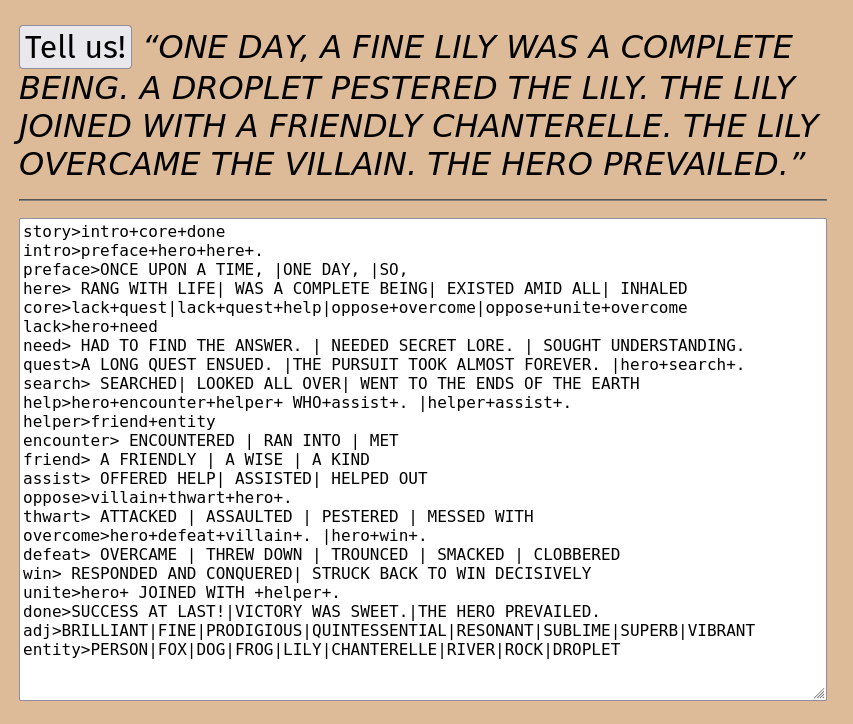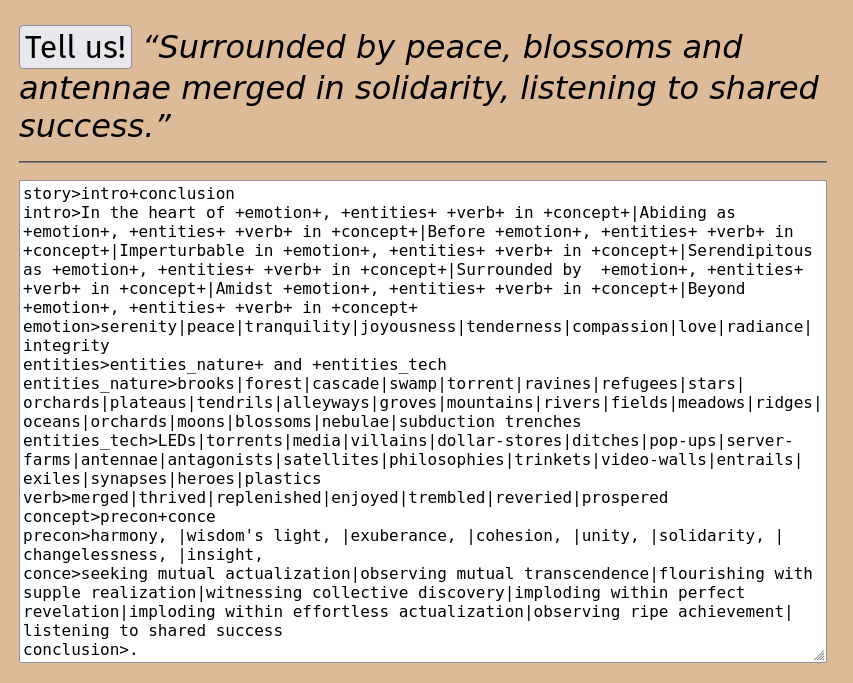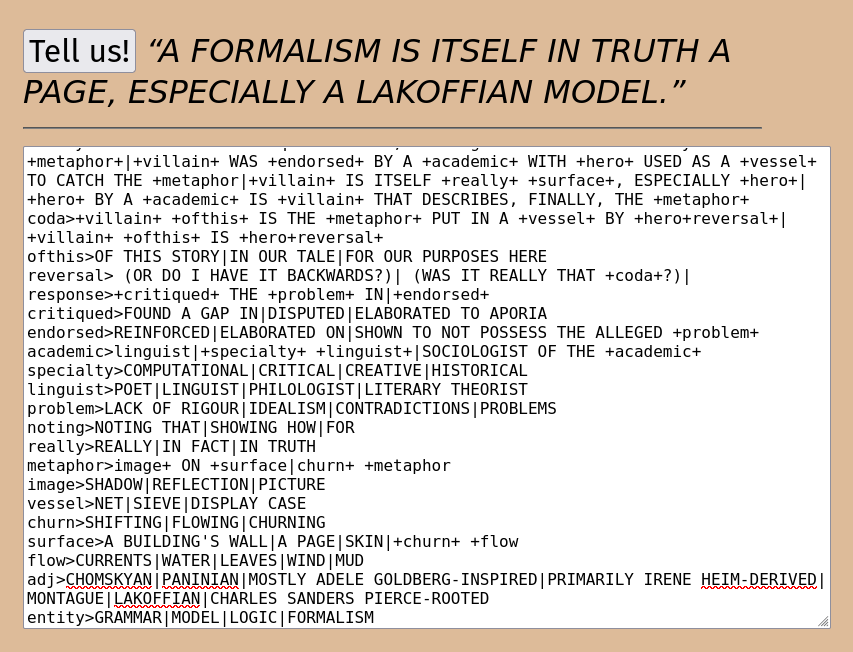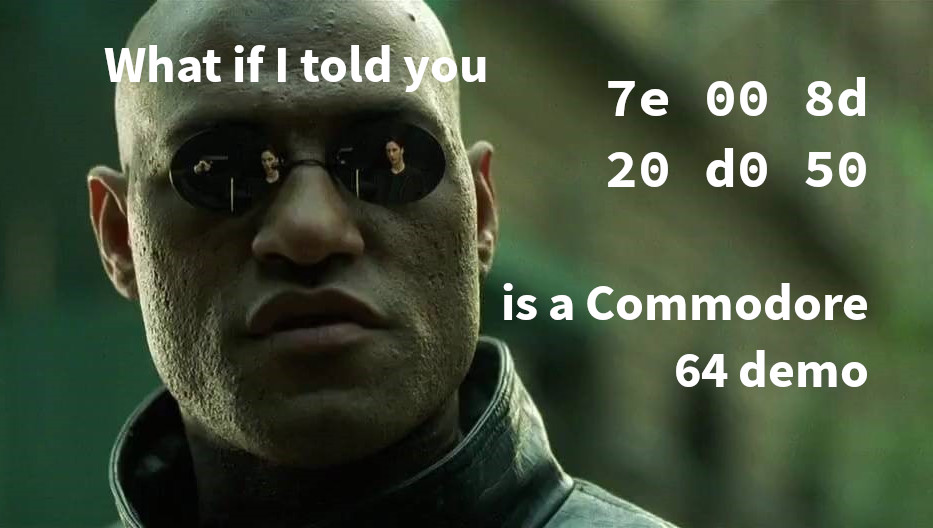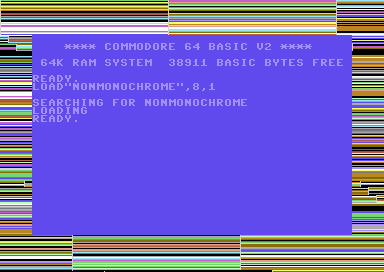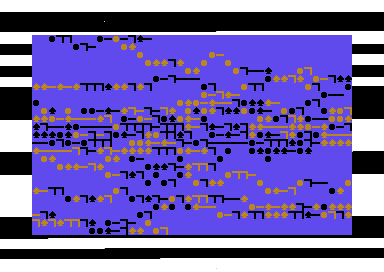Edward Schiappa, Professor of Rhetoric
Nick Montfort, Professor of Digital Media
10 January 2023
[In response to a request, this is an HTML version of a PDF memo for our colleagues at MIT]
There has been a noticeable increase in student use of AI assistance for writing recently. Instructors have expressed concerns and have been seeking guidance on how to deal with systems such as GPT-3, which is the basis for the very recent ChatGPT. The following thoughts on this topic are advisory from the two of us: They have no official standing within even our department, and certainly not within the Institute. Nonetheless, we hope you find them useful.
Newly available systems go well beyond grammar and style checking to produce nontrivial amounts of text. There are potentially positive uses of these systems; for instance, to stimulate thinking or to provide a variety of ideas about how to continue from which students may choose. In some cases, however, the generated text can be used without a great deal of critical thought to constitute almost all of a typical college essay. Our main four suggestions for those teaching a writing subject are as follows:
- Explore these technologies yourself and read what has been written about them in peer-reviewed and other publications,
- understand how these systems relate to your learning goals,
- construct your assignments to align with learning goals and the availability of these systems, and
- include an explicit policy regarding AI/LLM assistance in your syllabus.
Exploring AI and LLMs
LLMs (Large Language Models) such as those in the GPT series have many uses, for instance in machine translation and speech recognition, but their main implications for writing education have to do with natural language generation. A language model is a probability distribution over sequences of words; ones that are “large” have been trained on massive corpora of texts. This allows the model to complete many sorts of sentences in cohesive, highly plausible ways that are sometimes semantically correct. An LLM can determine, for instance, that the most probable completion of the word sequence “World War I was triggered by” is “the assassination of Archduke Franz Ferdinand” and can continue from there. While impressive in many ways, these models also have several limitations. We are not currently seeking to provide a detailed critique of LLMs, but advise that instructors read about the capabilities and limitations of AI and LLMs.
To understand more about such systems, it is worth spending some time with those that are freely available. The one attracting the most attention is ChatGPT. The TextSynth Playground also provides access to several free/open-source LLMs, including the formidable GPT-NeoX-20B. ChatGPT uses other AI technologies and is presented in the form of a chatbot, while GPT-NeoX-20B is a pure LLM that allows users to change parameters in addition to providing prompts.
Without providing a full bibliography, there is considerable peer-reviewed literature on LLMs and their implications. We suggest “GPT-3: What’s it good for?” by Robert Dale and “GPT-3: Its Nature, Scope, Limits, and Consequences” by Luciano Floridi & Massimo Chiriatti. These papers are from 2020 and refer to GPT-3; their insights about LLMs remain relevant. Because ChatGPT was released in late November 2022, the peer-reviewed research about it is scant. One recent article, “Collaborating With ChatGPT: Considering the Implications of Generative Artificial Intelligence for Journalism and Media Education,” offers a short human-authored introduction and conclusion, presenting sample text generated by ChatGPT between these.
Understanding the Relationship of AI and LLMs to Learning Goals
The advisability of any technology or writing practice depends on context, including the pedagogical goals of each class.
It may be that the use of a system like ChatGPT is not only acceptable to you but is integrated into the subject, and should be required. One of us taught a course dealing with digital media and writing last semester in which students were assigned to computer-generate a paper using such a freely-available LLM. Students were also assigned to reflect on their experience afterwards, briefly, in their own writing. The group discussed its process and insights in class, learning about the abilities and limitations of these models. The assignment also prompted students to think about human writing in new ways.
There are, however, reasons to question the practice of AI and LLM text generation in college writing courses.
First, if the use of such systems is not agreed upon and acknowledged, the practice is analogous to plagiarism. Students will be presenting writing as their own that they did not produce. To be sure, there are practices of ghost writing and of appropriation writing (including parody) which, despite their similarity to plagiarism, are considered acceptable in particular contexts. But in an educational context, when writing of this sort is not authorized or acknowledged, it does not advance learning goals and makes the evaluation of student achievement difficult or impossible.
Second, and relatedly, current AI and LLM technologies provide assistance that is opaque. Even a grammar checker will explain the grammatical principle that is being violated. A writing instructor should offer much better explanatory help to a student. But current AI systems just provide a continuation of a prompt.
Third, the Institute’s Communication Requirement was created (in part) in response to alumni reporting that writing and speaking skills were essential for their professional success, and that they did not feel their undergraduate education adequately prepared them to be effective communicators.[1] It may be, in the fullness of time, that learning how to use AI/LLM technologies to assist writing will be an important or even essential skill. But we are not at this juncture yet, and the core rhetorical skills involving in written and oral communication—invention, style, grammar, reasoning and argument construction, and research—are ones every MIT undergraduate still needs to learn.
For these reasons, we suggest that you begin by considering what the objectives are for your subject. If you are aiming to help students critique digital media systems or understand the implications of new technologies for education, you may find the use of AI and LLMs not only acceptable but important. If your subject is Communication Intensive, however, an important goal for your course is to develop and enhance your students’ independent writing and speaking ability. For most CI subjects, therefore, the use of AI-assisted writing should be at best carefully considered. It is conceivable at some point that it will become standard procedure to teach most or all students how to write with AI assistance, but in our opinion, we have not reached that point.The cognitive and communicative skills taught in CI subjects require that students do their own writing, at least at the beginning of 2023.
Constructing Assignments in Light of Learning Goals and AI/LLMs
Assigning students to use AI and LLMs is more straightforward, so we focus on the practical steps that can be taken to minimize use when the use of these system does not align with learning goals. In general, the more detailed and specific a writing assignment, the better, as the prose generated by ChatGPT (for example) tends to be fairly generic and plain.
Furthermore, instructors are encouraged to consult MIT’s writing and communication resources to seek specific advice as to how current assignments can be used while minimizing the opportunities for student use of AI assistance. These resources include Writing, Rhetoric, and Professional Communication program, the MIT Writing & Communication Center, and the English Language Studies program It is our understanding that MIT’s Teaching + Learning Lab will be offering advice and resources as well.
Other possible approaches include:
• In-class writing assignments
• Reaction papers that require a personalized response or discussion
• Research papers requiring quotations and evidence from appropriate sources
• Oral presentations based on notes rather than a script
• Assignments requiring a response to current events, e.g., from the past week
The last of these approaches is possible because LLMs are trained using a fixed corpus and there is a cutoff date for the inclusion of documents.
Providing an Explicit Policy
Announcing a policy clearly is important in every case. If your policy involves the prohibition of AI/LLM assistance, we suggest you have an honest and open conversation with students about it. It is appropriate to explain why AI assistance is counter to the pedagogical goals of the subject. Some instructors may want to go into more detail by exploring apps like ChatGPT in class and illustrating to students the relative strengths and weaknesses of AI-generated text.
In any case: What this policy should be depends on the kinds and topics of writing in your subject. If you do not wish your students to use AI assisted writing technologies, you should state so explicitly in your syllabus. If the use of this assistance is allowable within bounds, or even required because students are studying these technologies, that should be stated as well.
In the case of prohibition, you could simply state: “The use of AI software or apps to write or paraphrase text for your paper is not allowed.” Stronger wording could be: “The use of AI software or apps to write or paraphrase text for your paper constitutes plagiarism, as you did not author these words or ideas.”
There are automated methods (such as Turnitin and GPTZero) that can search student papers for AI-generated text and indicate, according to their own models of language, how probable it is that some text was generated rather than human-written. We do not, however, know of any precedent for disciplinary measures (such as failing an assignment) being instituted based on probabilistic evidence from such automated methods.
Conclusion
The use of AI/LLM text generation is here to stay. Those of us involved in writing instruction will need to be thoughtful about how it impacts our pedagogy. We are confident that the Institute’s Subcommittee on the Communication Requirement, the Writing, Rhetoric, and Professional Communication program, the MIT Writing & Communication Center, and the English Language Studies program will provide appropriate resources and counsel when appropriate. We also believe students are here at MIT to learn, and will be willing to follow thoughtfully advanced policies so they can learn to become better communicators. To that end, we hope that what we have offered here will help to open an ongoing conversation.[2]
[1] L. Perelman, “Data Driven Change Is Easy; Assessing and Maintaining It Is the Hard Part,” Across the Disciplines 6.2 (Fall 2009). Available: http://wac.colostate.edu/atd/assessment/perelman.cfm. L. Perelman, “Creating a Communication-Intensive Undergraduate Curriculum in Science and Engineering for the 21st Century: A Case Study in Design and Process.” In Liberal Education in 21st Century Engineering, Eds. H. Luegenbiehl, K. Neeley, and David Ollis. New York: Peter Lang, 2004, pp. 77-94.
[2] Our thanks to Eric Klopfer for conversing with us concerning an earlier draft of this memo.







![Page spread from OUTPUT with Talan Memmott’s Self Portrait(s) [as Other(s)]](wp-content/stuff/9780262549813_p2_v4_s1200x1200-1024x1024.jpg)

